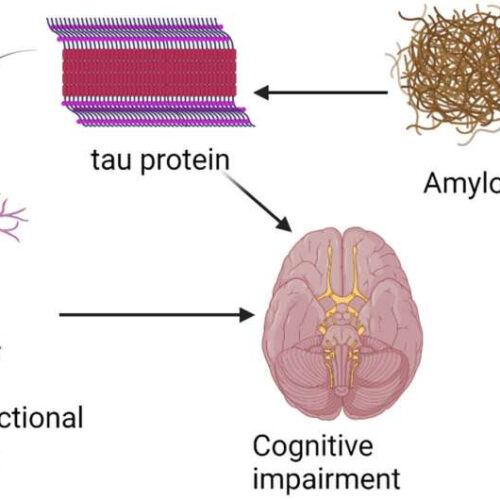September 20, 2024 Credit: Unsplash/CC0 Public DomainTwo new drugs, the first capable of slowing down the debilitating progression of Alzheimer’s disease, have become embroiled in one of the biggest medical controversies in recent years. For their defenders, the drugs lecanemab and donanemab represent the first real chance to fight the disease after decades of research—for...
Tag: <span>Alzheimer’s drugs</span>
Scientists test two Alzheimer’s drugs head-to-head in first-ever virtual clinical trial
by Adrienne Berard, Pennsylvania State University The biomarker cascade in AD starts with amyloid beta pathology. This leads to amyloid-related tau pathology, neuronal dysfunction/loss and subsequent cognitive impairment. Credit: PLOS Computational Biology (2022). DOI: 10.1371/journal.pcbi.1010481 An estimated 6.2 million Americans ages 65 and older are living with Alzheimer’s disease. The national Alzheimer’s Association predicts that number to grow to...
New study expands range of potential Alzheimer’s drugs
UNIVERSITÉ LAVAL Québec City, October 25, 2022 – Alzheimer’s disease is associated with a reduction of insulin receptors in brain microvessels, which may contribute to brain insulin resistance and the formation of amyloid plaques, one of the disease’s hallmarks. That’s according to a study published today in scientific journal Brain by a team from Université Laval and Rush...
Genetic ‘hotspots’ that speed up and slow down brain aging could provide new targets for Alzheimer’s drugs
by University of Southern California Credit: CC0 Public Domain Researchers from a USC-led consortium have discovered 15 “hotspots” in the genome that either speed up brain aging or slow it down—a finding that could provide new drug targets to resist Alzheimer’s disease and other degenerative brain disorders, as well as developmental delays. The research appears...
New drug screening method answers why Alzheimer’s drugs fail, suggests new targets
by University of California – San Diego Credit: Pixabay/CC0 Public Domain By analyzing disease mechanisms in human neurons, researchers led by the University of California San Diego developed a new method to screen drugs for treating Alzheimer’s disease. Their work sheds light on why Alzheimer’s drugs so far have been ineffective at curing or reversing...
Repurposed cancer treatments could be potential Alzheimer’s drugs
by National Institutes of Health Credit: CC0 Public Domain Existing and emerging cancer drugs could be repurposed as therapies to be tested in clinical trials for people at genetic risk of Alzheimer’s disease, according to a new study published in Science Advances. Research combining analysis of brain protein alterations in these individuals as well as laboratory...





